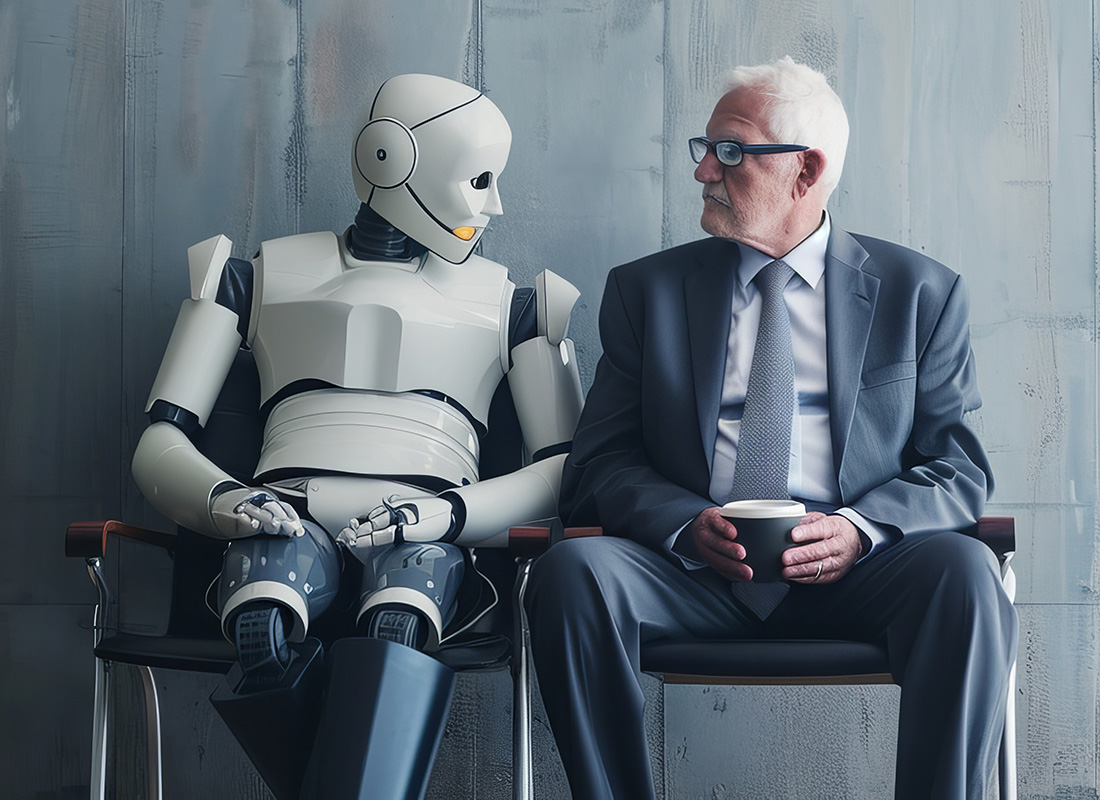The Reassuring Truth About AI
Originally published on April 11, 2023
Updated on November 14th, 2024
As artificial intelligence (AI) evolves and more uses for it are found, it also sparks a sensitive debate: Could it replace a human workforce (at least in part)?
The advent of AI could become a growing concern for employees in a variety of industries. New technology and change will also bring with it some resistance or anxiety. But AI can also offer ways to improve the workplace, ushering in new opportunities and greater job satisfaction. It could take over more routine or repetitive daily tasks or introduce efficiencies so your employees can focus on more complex and creative endeavors. It can drive innovation that in turn creates new work opportunities.
If your company is starting to explore AI for business use, reassuring employees about their standing with your organization (and how AI can make their work better) will help keep them engaged and increase buy-in for AI systems. Take the time to educate your management team and employees about the benefits they’ll experience with this technology. Answer their questions and listen to their concerns.
The big concern
Change is nothing new when it comes to business. Over 250 years ago we ushered in the industrial revolution, followed by the assembly line in the early 20th century. Several decades after that saw the technical revolution and the emergence of computer, mobile and internet connectivity.
Now in the modern era, AI is rapidly transforming the way society lives and works. From voice-to-text and chatbots to self-driving cars and robotics, it’s become part of our daily lives. However, it has also prompted worry among workers about job security. Some people fear it will replace them, leaving them with no alternative means of income.
The reality—and the benefits
The fact is that even though AI use is ramping up, it’s still very new technology. We don’t really know where it’s going. But we do know the potential benefits are pretty big.
Let’s say you’re the manager of a large healthcare practice. Your staff includes care providers and administrative positions, and you need to schedule their hours. There’s a lot to think about: peak and non-peak hours, personnel needed for certain procedures, requests for time off from staff members, etc. It’s a job that could take hours, and you certainly have a mountain of other work to do.
Instead, AI technology can be used to perform this task. It can consider all the factors we just mentioned and produce a schedule within minutes. Meanwhile, you and your coworkers are free to focus on patient care and other pressing matters.
Simply put, AI is not a replacement for human intelligence and intuition. While it can analyze data and identify patterns, it cannot replace the human ability to make decisions based on context, experience and feelings. It’s designed to automate repetitive work so employees can turn their attention elsewhere. In this vein, AI can help employees work more efficiently, increasing their productivity and job satisfaction.
The rise of AI has also created a demand for skilled professionals who can develop, implement and maintain these systems. Some organizations are investing in retraining programs to upskill their employees for these new roles. This in turn creates more employment opportunities within the workforce.
How to reassure your employees
It’s one thing for you understand the positives of AI in the workplace. But when employees aren’t kept in the loop, that brings with it uncertainty, anxiety and other emotions that often lead to employee disengagement. And in the age of the Great Resignation, losing talent is the last thing you need.
So what can you to do assure your workforce about the use of AI?
- Listen to employees’ concerns about AI and address them directly. Use easy-to-understand terms to explain how it will be integrated into current processes. Be as specific as possible when discussing how it will impact their work and how they’ll benefit. Acknowledging your employees’ concerns about AI—and answering their questions honestly—will help ease potential stresses that emerge.
- Discuss how AI will help your organization as a whole. When company-wide improvement happens, it generally leads to an improved environment for all who work there.
- Conduct training about your company’s planned use of AI. Offer direct support to those affected by automated tasks.
- Emphasize that AI is not a one-size-fits-all solution. Different industries and organizations have varying needs and priorities, and AI can be customized to meet them.
- Reach out to a human resources professional. They can answer questions on handling sensitive employee situations and other HR matters pertaining to AI use.
While some people may feel threatened by AI, it can be a valuable asset. By communicating clearly how it can make work more efficient and easier, your employees will be more likely to embrace its potential.
All content provided in this article is for informational purposes only. Matters discussed in this article are subject to change. For up-to-date information on this subject please contact a James Moore professional. James Moore will not be held responsible for any claim, loss, damage or inconvenience caused as a result of any information within these pages or any information accessed through this site.
Other Posts You Might Like

